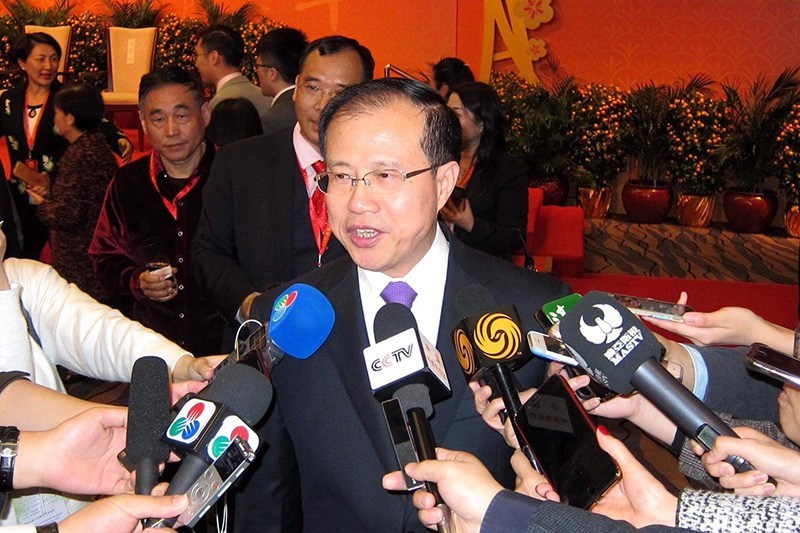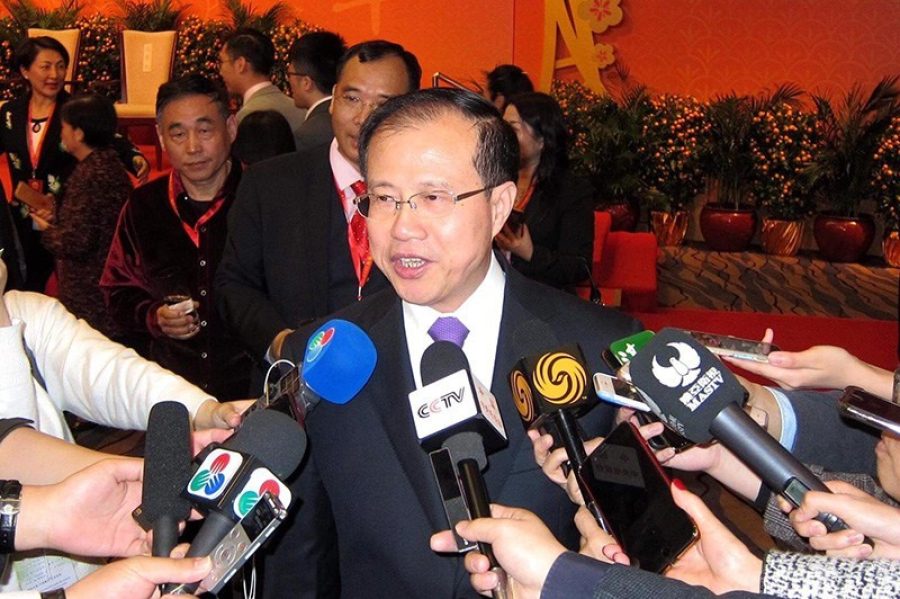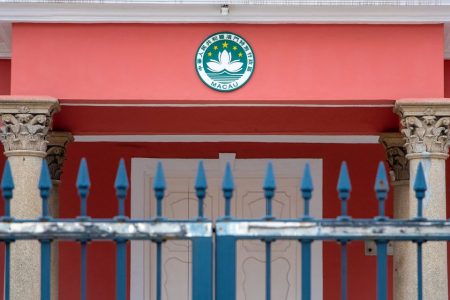In a seminar held Tuesday, Central People’s Government Liaison Office in Macau Director Fu Ziying raised “three points” for Macau’s civil society, namely upholding the authority of the nation’s Constitution and the Macau Basic Law, accelerating Macau’s integration into the overall national development, and carrying out two big tasks – the organisation of the upcoming chief executive election and the transition to the incoming local government.
Fu raised the “three points” when delivering a speech during a seminar marking the 26th anniversary of the promulgation of the Macau Basic Law, which was passed by the National People’s Congress (NPC) on March 31, 1993 and promulgated by the nation’s then president Jiang Zemin on the same day. The Macau Basic Law took effect on December 20, 1999 when the Macau Special Administrative Region (MSAR) was established.
The one-day seminar, held at the Macau Science Centre in Nape, was about the retrospect and prospects of the successful implementation of the “One Country, Two Systems” principle for the past two decades in Macau.
The seminar was organised by the Macau Basic Law Promotion Association (ADLBM) in collaboration with Peking University’s Hong Kong, Macau and Taiwan Law Research Centre in Beijing and three local government entities, namely the Legal Affairs Bureau (DSAJ), Municipal Affairs Bureau (IAM) and Education and Youth Affairs Bureau (DSEJ).
Chief Executive Fernando Chui Sai On and Legislative Assembly (AL) President Ho Iat Seng also attended the seminar. Ho is widely expected to stand in the chief executive election in August.
According to Fu, the first point is for Macau’s civil society to firmly uphold the authority of the nation’s Constitution and the Macau Basic Law so as to ensure the continuation of the successful implementation of the “One Country, Two Systems” principle.
Fu noted that when Macau returned to the motherland in 1999, it was incorporated into the nation’s governance system, meaning that the Constitution and the Macau Basic Law jointly constitute the Macau Special Administrative Region’s (MSAR) constitutional foundations.
Fu urged Macau to holistically combine upholding the principle of “one country” with respecting the difference of “two systems”, maintaining the power of the central government with ensuring the high degree of autonomy of the MSAR, and letting the mainland play its role as a strong supporter of Macau with improving its own competitive edge, so as to “advance” the implementation of the “One Country, Two Systems” principle.
According to Fu, the second point is for Macau to accelerate its process of integrating its own development into the overall national development, so as to achieve a new round of development
Fu listed several “fundamental” ways for Macau to achieve its integration task, such as by participating in the development of the Guangdong-Hong Kong-Macau Greater Bay Area (GBA), by developing the city into “one centre, one platform and one base” – a world tourism and leisure centre, a business-service platform between China and Portuguese-speaking countries (PSCs), and “a multicultural exchange and cooperation base with an emphasis on Chinese culture”, and by developing the city into a platform for the development of the traditional Chinese medicine (TCM) industry.
Fu urged the local government to administer Macau based on the city’s overall and long-term interests and residents’ well-being. He also urged Macau to create a new phase of the implementation of the “One Country, Two Systems” principle through “institutional innovation”.
According to Fu, the third point is for Macau to concentrate on accomplishing two “big” tasks – the organisation of the upcoming chief executive election and the transition to the incoming local government.
Noting that this year marks the 70th anniversary of the founding of the People’s Republic of China (PRC) and the 20th anniversary of Macau’s return to the motherland, Fu urged the various segments of Macau’s civil society to support the law-based governance by the chief executive and the administration and to ensure social stability and harmony in the city, so as to ensure that the two “big” tasks will be well carried out.
The PRC was founded on October 1, 1949.
Macau’s next chief executive and other principal officials are scheduled to be sworn in on December 20. According to unconfirmed media reports, President Xi Jinping will pay an inspection visit to Macau at that time and preside over the swearing-in ceremony.
Also delivering a speech during the seminar, Chui said that during the past two decades the local government always fully and accurately implemented the “One Country, Two Systems” and “Macau people govern Macau” principles and Macau’s high degree of autonomy by administering the city in strict adherence with the nation’s Constitution and the Macau Basic Law.
Chui pledged that the local government will strengthen its work to firmly uphold the principle of “One Country” while making good use of the advantages of the “Two Systems”.(Macaunews)






